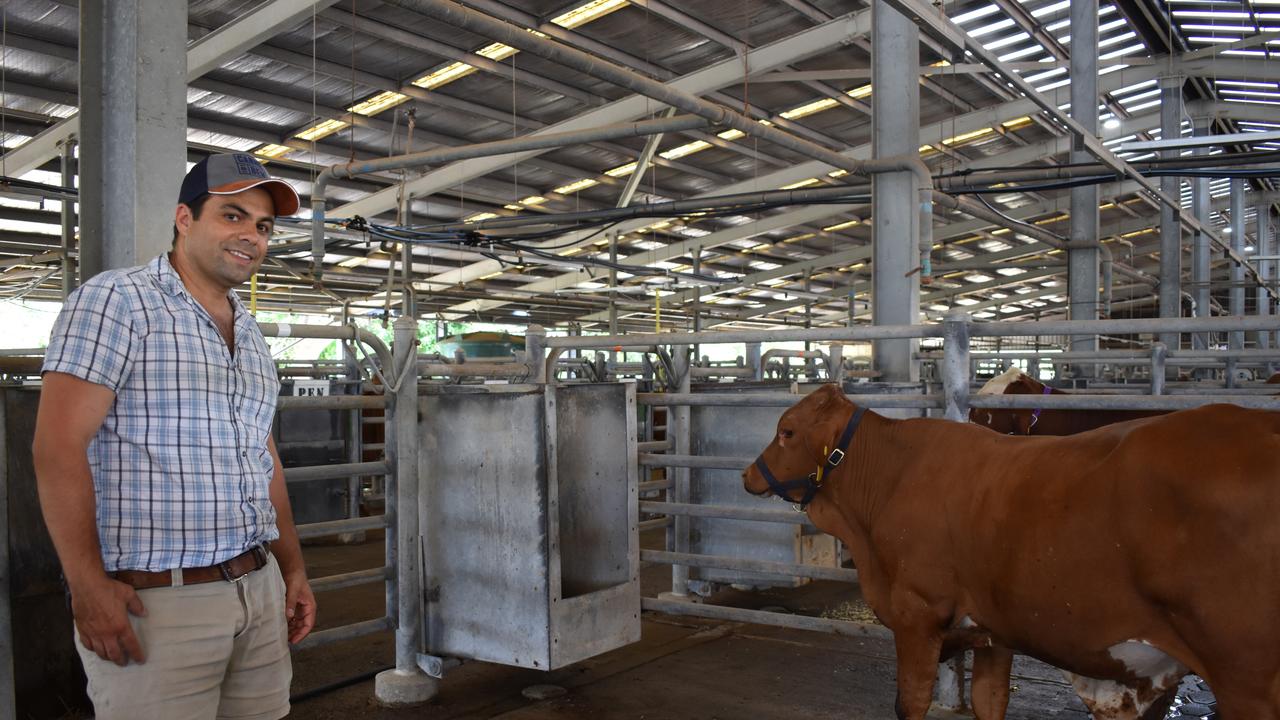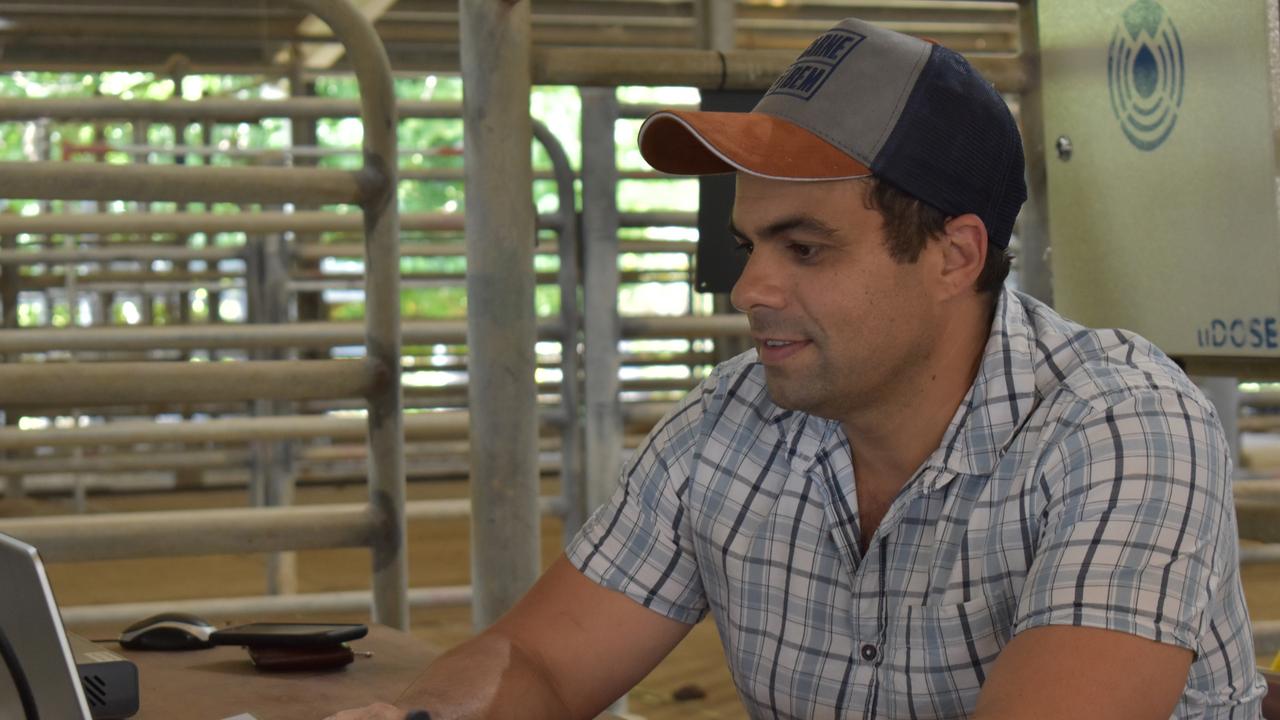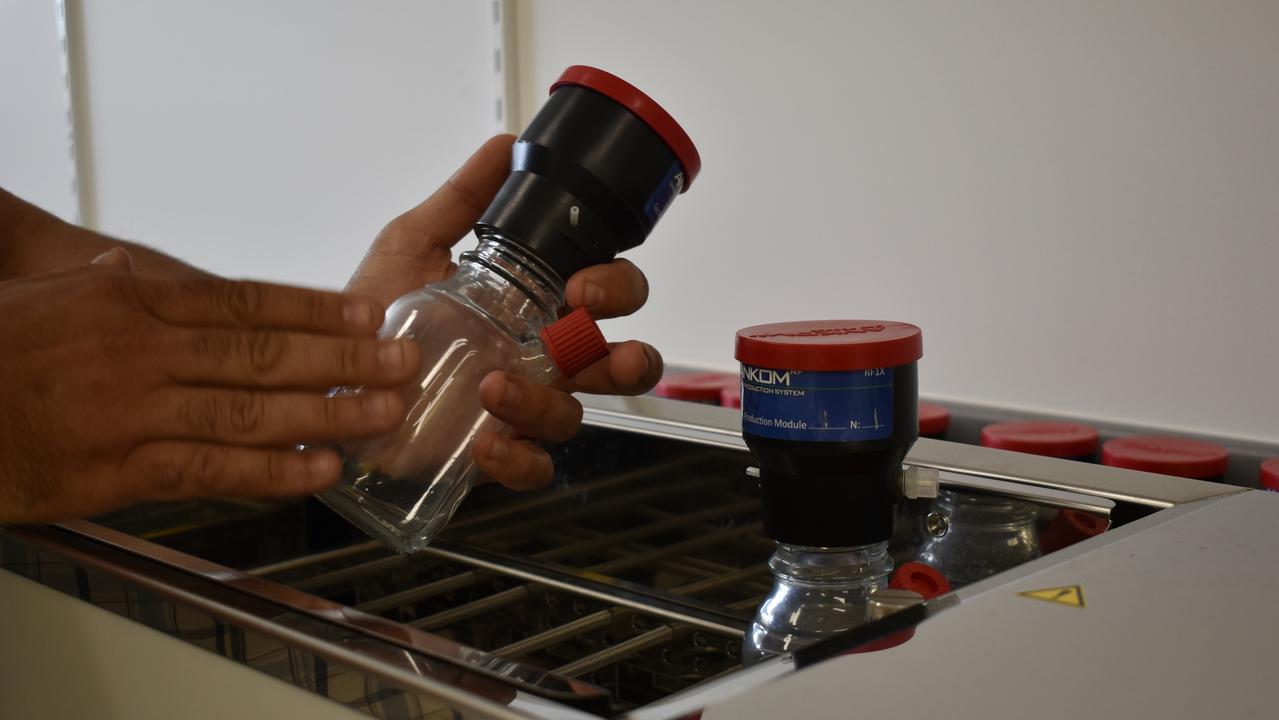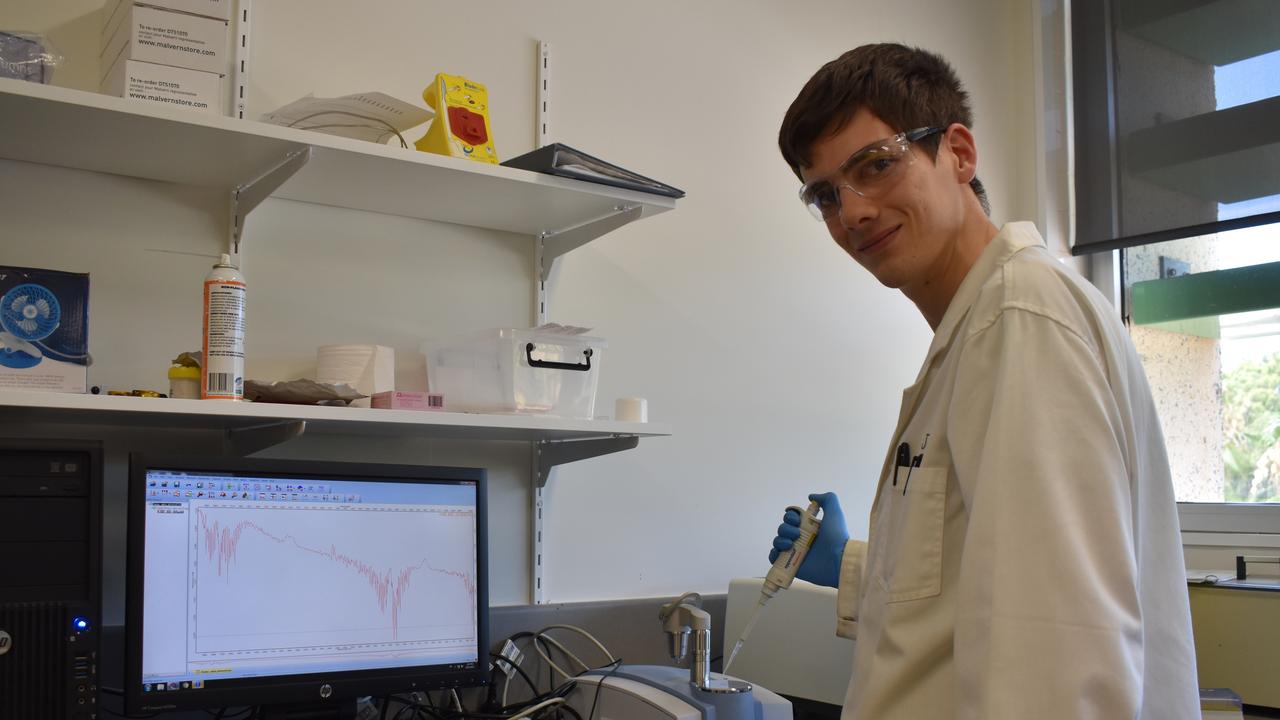CQUniversity Rockhampton to host world first methane reduction trial
Scientists at CQUniversity Rockhampton have begun a world first trial to see if methane emitted from cows can be reduced.

Scientists at CQUniversity Rockhampton have started a world-first trial to help reduce methane emissions that are produced from cattle.
After successful and promising results in the lab, Dr Diogo Costa and his team have begun trialling a water supplement to see if it will reduce methane emitted from cattle.
It is understood to be the first time such a trial has been done using water consumption.
Cattle are a major contributor to methane emissions, a potent greenhouse gas, with a single cow emitting 100kg of the gas each year.

If successful, the trial could be a big help to achieve the Australian target of a 30 per cent reduction in methane emissions by 2030.
The university has partnered with DIT AgTech, the first company in the world to develop a method for feeding animals methane-reducing supplements through drinking water.
The project has just reached phase two, the in vivo phase, with phase one being completed in September in the lab.
Phase two will involve a pen trial, which will see a small herd of cows all individually penned given the different products in their water to see which is most effective.
Dr Costa said in the lab, they managed to achieve almost a 100 per cent reduction in their tests and simulations.

“We looked at the solubility and stability in water of a number of different compounds. We started off with 35 in total and then came down to 13 which we then tested in conditions that would be similar in the field,” he said.
“We didn’t want to reinvent the wheel, so we tested products from all over the world, products that aren’t commercially available but we have enough information about, we tried anything we could get out hands on.
“These were done in vitro, so we were simulating what was happening in the rumen in an artificial environment, adding the additives into water, then a solution, and a substrate so see the effects on gas production and profile, and also the feed digestibility to see if it would affect the feed.”
After the lab work the team chose items that would give them the “best bet” for methane production.

DIT AgTech Company Secretary and Innovations Lead, Vivienne McCollum, said she was excited to be part of the “ground breaking” research.
“With DIT’s technology and CQU’s research, the in vivo phase of this trial marks the first ever testing of methane-reducing additives on live animals via drinking water,” she said.
“In practice, with the methane-reducing additives, we are hypothesising we can reduce cattle methane emissions by 80 to 90 per cent.
“We believe water supplementation will help the agricultural industry to dramatically reduce its carbon footprint, and this research is an important step in demonstrating its potential.”
After the in vivo phase of the trial, a further trial will take place at the Belmont Research Station in paddock, before moving the research to cattle on another station.




